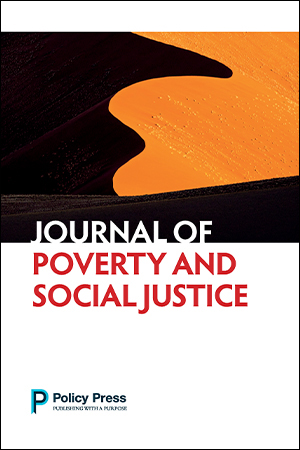When we started exploring food insecurity, we noticed that despite high rates of male attendance at food aid sites, there was limited research focusing on their experience. Single men were clearly a group likely to be experiencing food insecurity, but where were their voices in the studies?
In our article exploring the experiences of food-insecure single men, we draw on two separate studies located in different parts of the UK. From ethnographic observations and interviews conducted with both single men experiencing moderate to severe food insecurity, and volunteers at food aid sites, we delve into single men’s experiences of food insecurity and try to understand why they are overrepresented at sites of food aid.
The male participants identified several factors which they felt contributed to men being more likely to access food aid. Unsurprisingly, homelessness – and in some cases rooflessness – was a key reason, in the absence of somewhere safe to store, prepare and cook food. Many participants didn’t express any hope of being able to move away from homelessness. The priority for local authorities, in their view, was the housing of women, due to their perceived vulnerability and the likelihood of their being carers of children or other relatives. In general, men accepted this hierarchy in the context of an insufficient supply of social housing and didn’t convey any sense of bitterness or injustice. Instead, there was almost a sense of what could be described as chivalry displayed in their remarks that women should indeed be the priority for housing and that men were less vulnerable and so better able to manage homelessness and rooflessness and their associated risks.
Masculine ideals seem to influence where and from whom men seek help. The participants frequently described being unwilling or unable to lean on their families for support. This was often tied up in a perception of the man being the ‘provider’. In much of the literature related to food insecurity, women describe exhausting familial and friendship networks before attending a site of food aid. Most of the men, on the other hand, bypass this stage and head to sites of food aid first.
We were keen to understand how male participants explained their gender dominance at sites of food aid. Often, they cited perceived gender-based faults, such as men being unable to cook, and lacking basic housekeeping skills such as effective budgeting. Immature and chaotic ‘male traits’ were seen as factors contributing to their need for food aid. We were sceptical of the notion that men needed food aid because of their inability to cook or budget, particularly when many participants described their strict budgeting habits and tricks that they learnt to make their money last longer. These negative perceptions of men, by men, were sometimes used to justify their own level of deservingness and authenticity of need.
As well as physical nourishment, the social element of chatting with others over food was identified as an additional benefit of sites of food aid. During our time with participants, it became clear that poor men often had nowhere to go. Spaces we traditionally associate with working-class men such as pubs, social clubs, snooker halls and gyms were places our participants couldn’t afford to go to. Free or cheap activities – toddler groups, knit and natter – were often aimed at women or pensioners. Therefore, for many participants, the sites of food aid unintentionally became an important space to socialise at no cost.
From our article we hope to highlight how men are often overlooked in societal and policy responses to poverty, as well as the lack of access to food and social housing that are symptoms of poverty. Through an insight into single men’s experiences of food insecurity, we seek to make these experiences visible.
Kathryn Machray is self-employed and provides research support services. Kate Haddow is a research lead in the Public Health Team at Gateshead Council.
 ‘Lads are daft though, aren’t they?’ Exploring men’s narratives of mitigating food insecurity and navigating food aid by Kathryn Machray and Kate Haddow is available to read in the Journal of Poverty and Social Justice on Bristol University Press Digital here.
‘Lads are daft though, aren’t they?’ Exploring men’s narratives of mitigating food insecurity and navigating food aid by Kathryn Machray and Kate Haddow is available to read in the Journal of Poverty and Social Justice on Bristol University Press Digital here.
Bristol University Press/Policy Press newsletter subscribers receive a 25% discount on our books – sign up here.
Follow Transforming Society so we can let you know when new articles publish.
The views and opinions expressed on this blog site are solely those of the original blog post authors and other contributors. These views and opinions do not necessarily represent those of the Bristol University Press and/or any/all contributors to this site.
Image credit: Enrico Mantegazza via Unsplash


